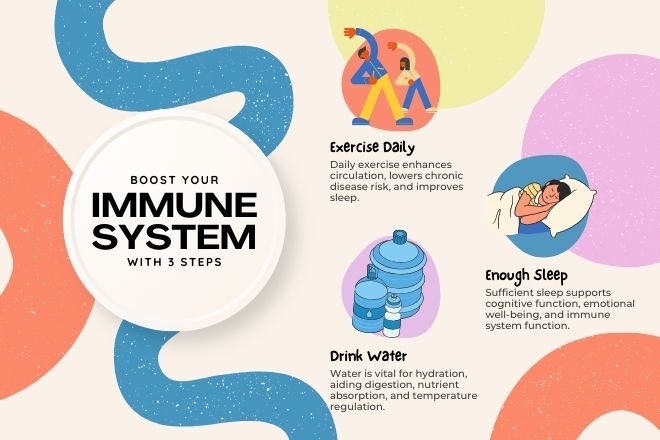The importance of prenatal care is essential for the well-being of both mother and baby during the course of pregnancy. This care includes regular doctor’s visits, nutritional guidance, and routine testing to safeguard against potential health issues. Early and consistent prenatal care can lead to the early detection and treatment of any pregnancy-related complications, contributing to a reduced risk of preterm birth and low birth weight.
It also provides an opportunity for healthcare providers to educate expectant parents on important aspects of pregnancy, including diet, exercise, and the management of any existing medical conditions. By prioritizing prenatal care, pregnant individuals can significantly improve their chances of a healthy and successful pregnancy outcome.
What Is the Importance of Prenatal Care?
The importance of Prenatal care is vital for a healthy pregnancy. It involves regular check-ups and tests to ensure both the mother and the baby are healthy. By attending prenatal appointments, expectant mothers can learn about healthy pregnancy benefits and the advantages of prenatal care. These include monitoring the baby’s growth, preventing complications, and getting tips on healthy living. Let’s dive into what prenatal care really means.
Prenatal care is the health care that a woman receives during pregnancy. It’s crucial for keeping both the mother and the baby safe and healthy. This care starts early in the pregnancy and continues until delivery. The main goals are to monitor the pregnancy, prevent complications, and provide moms-to-be with dietary and lifestyle advice.
During prenatal visits, healthcare providers perform various tests and screenings. These help identify and manage any potential health issues. The importance of prenatal care also offers an excellent opportunity for expectant mothers to ask questions and prepare for childbirth.
Key components of prenatal care include:
- Nutritional guidance to ensure both mom and baby are getting the necessary nutrients.
- Regular check-ups for monitoring the baby’s growth and the mother’s health.
- Screenings and tests to detect any potential health concerns early on.
- Education on childbirth, breastfeeding, and newborn care.
By embracing the importance of prenatal care, expectant mothers greatly increase their chances of a healthy pregnancy. It’s a proactive approach that offers numerous advantages, ensuring the well-being of both mother and child.

Why Is Prenatal Care Important?
Taking care of your health is always important, but it becomes crucial when you’re expecting a baby. Prenatal care is the health care you get while you are pregnant. It includes your checkups and prenatal testing. Why is prenatal care important? It’s simple. This care can help keep you and your baby healthy, spot problems if they occur, and prevent difficulties during delivery. Healthy pregnancy benefits both the mother and the baby in numerous ways, and the advantages of prenatal care are significant. Let’s explore these benefits in more detail.
Reduces The Risk Of Complications During Pregnancy
Regular prenatal visits play a key role in reducing the risk of complications that could harm both the mother and baby. These complications can range from mild to severe and may include:
- High blood pressure, which can lead to more serious conditions like preeclampsia
- Gestational diabetes, which can cause the baby to grow larger than normal
- Preterm labor, leads to babies being born too early
By monitoring the mother’s health and providing timely interventions, prenatal care ensures a safer gestation period. Here’s how it helps:
| Checkup | Benefits |
|---|---|
| Blood pressure monitoring | Prevents preeclampsia |
| Blood glucose tests | Manages gestational diabetes |
| Regular weight checks | Controls healthy weight gain |
Helps Detect And Manage Pregnancy-related Conditions
Prenatal care is not just about avoiding problems; it’s about managing them if they happen. Regular screenings and tests help detect conditions that could affect the mother or the baby’s health. Here are some conditions prenatal care can help manage:
- Anemia, which can make you feel tired and weak
- Infections, which can be dangerous for the baby
- Birth defects, which can sometimes be treated in utero
Through early detection, doctors can plan better birth strategies and manage the mother’s health to ensure a smoother pregnancy.
Ensures The Health And Wellbeing Of The Mother
A mother’s well-being is just as important as the baby’s. Prenatal care includes:
- Regular checkups to monitor the mother’s health
- Dietary guidance to ensure proper nutrition
- Exercise recommendations for a fit pregnancy
These aspects of care help maintain the mother’s health, preparing her body for the demands of pregnancy and childbirth.
Supports The Growth And Development Of The Fetus
The baby’s health is closely tied to prenatal care. This care supports the fetus by ensuring:
- Essential nutrients are received for proper development
- Early detection of any growth issues
- Monitoring for proper heart rate and movement
Regular ultrasound scans and tests keep track of the baby’s growth, helping to ensure they are developing as they should.
What Is The Most Important Prenatal Care?
While all aspects of prenatal care are important, the most critical part is starting it early and continuing it throughout the pregnancy. Early prenatal care, ideally in the first trimester, allows for:
- Assessment of the mother’s health
- Establishment of the due date
- Early lifestyle changes for a healthier pregnancy
Consistent care is the cornerstone of a healthy pregnancy and helps prevent most complications before they start.

When Should Prenatal Care Begin?
The importance of Prenatal care is a vital part of a healthy pregnancy. It helps keep both mother and baby safe and well. Prenatal care should start even before pregnancy. It continues with regular check-ups. This care makes sure that any problems are found early. It also helps with tips for a healthy pregnancy. The right time to start prenatal care is key to the best outcomes. Let’s explore when to begin this essential journey.
Before Pregnancy
Starting prenatal care before pregnancy sets the stage for a healthy nine months. It’s a chance to check the mother’s health and make changes if needed. Here’s what to focus on:
- Eating habits: A balanced diet helps prepare the body. It gives the right nutrients for a baby to grow.
- Exercise: Regular physical activity keeps the body strong. It makes it ready for the changes to come.
- Medical check-ups: Doctors can spot any health issues early on. They can treat these before they affect the pregnancy.
It’s also good to start taking prenatal vitamins. These are full of folic acid and other important nutrients. Here’s a table showing what to do before pregnancy:
| Task | Details |
|---|---|
| Doctor’s Appointment | Get a full check-up. Discuss any health issues. |
| Lifestyle Changes | Stop smoking and drinking alcohol. Start a healthy diet. |
| Vitamins | Begin taking prenatal vitamins with folic acid. |
During The First Trimester
The first trimester is a critical time for prenatal care. This is when doctors check the baby’s growth and the mother’s health. Visits to the doctor will include:
- Blood tests: These check for any health issues.
- Ultrasounds: These let doctors see how the baby is growing.
- Advice: Doctors give tips on how to stay healthy.
It’s also a time to ask questions and learn about the changes happening in the body. The first trimester is about building a strong foundation for the rest of the pregnancy. It helps to catch any issues early. This means better care for both mother and baby.
Regular Check-ups Throughout Pregnancy
Regular check-ups are a must for a healthy pregnancy. They give ongoing support. These check-ups track the baby’s growth and the mother’s health. They also give a chance to learn about the stages of pregnancy. The doctor will check the baby’s heartbeat. They also measure the growth of the baby bump. These visits help spot any problems early. This is good for both mother and baby. The advantages of prenatal care are clear. It leads to a safer pregnancy and a healthy baby.
What Happens During Prenatal Care Visits?
Prenatal care is vital for a healthy pregnancy. It involves regular check-ups that allow doctors to monitor the health of both mother and baby. These visits can help catch potential issues early, ensuring a safer pregnancy and birth. Let’s dive into what happens during these essential appointments.
Medical History And Physical Exam
The first step in prenatal care is a detailed look at medical history and a physical exam. Doctors gather info about past pregnancies, chronic conditions, and family health history. This step is crucial as it helps identify any risks to the mother or baby. Here’s what typically happens:
- Blood pressure checks to monitor for hypertension.
- Weight measurement to track healthy weight gain.
- Pelvic exam to assess the size and shape of the uterus.
- Breast exam to check for any abnormalities.
This info sets the stage for personalized care throughout the pregnancy. Expectant mothers can discuss any concerns and learn about the advantages and importance of prenatal care.
Routine Tests And Screenings
Regular tests and screenings are essential for monitoring the baby’s growth and catching any issues early. These may include:
- Blood tests to check for anemia, blood type, and other factors.
- Urine tests to detect infections or preeclampsia.
- Ultrasounds to view the baby’s development and position.
- Glucose screening to test for gestational diabetes.
These tests are usually done at different stages of the pregnancy. They help ensure everything is on track for a healthy pregnancy.
Nutrition And Exercise Guidance
Proper nutrition and exercise are pillars of a healthy pregnancy. During visits, doctors provide tailored advice on:
- Healthy eating habits to support baby’s growth.
- Safe exercise routines to maintain fitness and reduce discomfort.
They may also suggest prenatal vitamins and discuss foods to avoid. This guidance is one of the advantages of prenatal care, promoting well-being for mother and child.
Education And Support
Prenatal visits are a chance to learn and get support. Expectant parents can ask questions about labor, delivery, and newborn care. Healthcare providers offer resources and reassurance. This education is a cornerstone of prenatal care, equipping parents for the journey ahead.

Who Provides Prenatal Care?
Prenatal care is vital for a healthy pregnancy. It helps ensure the well-being of both the mother and the baby. Various health professionals provide this essential service. Let’s explore who these caregivers are.
Obstetricians And Gynecologists
Obstetricians and gynecologists (OB/GYNs) are doctors who specialize in women’s health, particularly pregnancy, childbirth, and reproductive system disorders. They play a crucial role in prenatal care, offering expert services that include:
- Monitoring the health of the mother and baby
- Performing ultrasounds and fetal assessments
- Managing health conditions that can affect pregnancy
An OB/GYN’s involvement ensures you receive expert advice on the advantages of prenatal care. These specialists provide a comprehensive approach to prenatal health, addressing potential risks and managing any complications that may arise.
Family Physicians
Family physicians are primary care doctors trained to provide health services to people of all ages. Their role in prenatal care includes:
- Basic monitoring of your pregnancy
- Guidance on nutrition and lifestyle for expectant mothers
- Coordination with other healthcare professionals if specialized care is needed
Choosing a family physician for prenatal care can benefit those who value a long-term relationship with a healthcare provider familiar with their medical history.
Certified Nurse-midwives
Certified nurse-midwives (CNMs) are registered nurses with advanced training in midwifery. They provide a range of prenatal services, focusing on a holistic approach to care. Their services include:
- Educational support and counseling
- Hands-on care during labor and delivery
- Postpartum support
CNMs often advocate for natural childbirth and provide personalized care throughout the pregnancy journey, emphasizing the healthy pregnancy benefits of a supportive and nurturing environment.
Other Healthcare Providers
Aside from OB/GYNs, family physicians, and CNMs, various other professionals contribute to prenatal care. These may include:
- Pediatricians
- Perinatologists for high-risk pregnancies
- Nutritionists for dietary planning
These providers work together to ensure a comprehensive prenatal care experience. Their collaboration highlights the collective advantages of prenatal care and its impact on maternal and child health.
What Are The Benefits Of Early Prenatal Care?
Expecting a baby brings joy and a touch of anxiety about the unknown. Early prenatal care is vital for a healthy start for both mother and baby. It ensures both parties receive the best care from the very beginning. What are the benefits of early prenatal care? Let’s dive in to understand the advantages of prenatal care and how they contribute to a healthy pregnancy.
Early Detection And Management Of Health Conditions
Starting prenatal care early is crucial for the well-being of both mother and baby. Here’s why:
- It allows doctors to spot health issues early. This can include high blood pressure, diabetes, or genetic conditions.
- Early care provides more options for managing concerns. This can range from lifestyle changes to medication or special treatments.
- Regular check-ups help track the baby’s development. Doctors ensure the baby’s growth is on track.
Consider this table showing common conditions and management strategies:
| Condition | Management Strategy |
|---|---|
| Gestational Diabetes | Dietary adjustments, glucose monitoring |
| High Blood Pressure | Regular exercise, medication if necessary |
| Anemia | Iron supplements, dietary changes |
With early detection, health issues can be managed effectively, leading to a safer pregnancy.
Improved Pregnancy Outcomes
Early prenatal visits play a significant role in improving pregnancy outcomes:
- They help in creating a birth plan that suits the mother’s needs and wishes.
- Doctors can monitor for signs of preterm labor, reducing risks for the baby.
- Proper nutrition advice can be given, ensuring the baby gets essential nutrients.
Studies show that mothers who receive early prenatal care have a lower chance of delivery complications. Their babies are more likely to have a healthy birth weight and a reduced risk of neonatal issues.
Greater Opportunity For Education And Support
Early prenatal care isn’t just about health checks; it’s also about support and education:
- Mothers learn about pregnancy stages, what to expect, and how to care for themselves.
- They get advice on safe exercise, stress management, and avoiding harmful substances.
- Support groups and classes can be recommended, offering a chance to connect with others.
This education and support are invaluable, providing confidence and reducing anxiety during pregnancy.
What Are Three Benefits Of Prenatal Care?
Let’s summarize the top three benefits of prenatal care:
- Health Monitoring: Regular check-ups lead to the early detection of potential health issues.
- Better Birth Results: Prenatal care reduces the risk of pregnancy complications and supports a healthy birth.
- Support and Knowledge: Mothers gain access to vital information and resources, fostering a well-supported pregnancy journey.
These benefits highlight the healthy pregnancy benefits that come with consistent and early prenatal care.
What Are Some Common Complications That Can Be Prevented With Prenatal Care?
Prenatal care is vital for the health of both mothers and babies. It helps prevent many problems that can affect them both. Let’s look at some common issues prenatal care can help avoid.
Gestational Diabetes
Gestational diabetes is a type of diabetes that can develop during pregnancy. It affects how your cells use sugar. Good prenatal care can help catch this early. Here’s what you need to know:
- Screening: Doctors do tests to find it before it causes problems.
- Diet: Eating the right food helps keep your blood sugar level.
- Exercise: Regular activity can also help control blood sugar.
With these steps, you can keep both you and your baby healthy.
Preeclampsia
Preeclampsia is a sudden rise in blood pressure after the 20th week of pregnancy. It can be serious, but prenatal care can prevent it. Here’s how:
- Regular check-ups: Your doctor checks your blood pressure often.
- Urine tests: These tests can show if there’s a protein in your urine.
- Medicines: Sometimes, you might need medicine to control your blood pressure.
Catching preeclampsia early can keep you and your baby safe.
Preterm Labor And Birth
Preterm labor is when your body starts getting ready for birth too early. Prenatal care helps stop this from happening. Here’s what’s done:
- Warning signs: Your doctor tells you what to look out for.
- Bed rest: Sometimes, resting can help slow down labor.
- Medicine: There are medicines that can delay birth.
This care can help your baby grow strong and healthy.
Low Birth Weight
Babies with low birth weight might have more health problems. Prenatal care can help prevent this. Here are some ways:
- Healthy eating: Getting the right nutrients is important.
- Supplements: Sometimes, you might need extra vitamins.
- No smoking: Staying away from cigarettes is crucial.
These steps help your baby grow big and strong.
Birth Defects
Birth defects are health problems that a baby is born with. Some can be prevented with good prenatal care. Here’s what doctors do:
- Tests: There are tests to check the baby’s health.
- Advice: Doctors give you tips on how to stay healthy.
- Medicines: Sometimes, certain medicines can help.
With the right care, the risk of birth defects can be lower.

What Are Some Lifestyle Changes That May Be Recommended During Prenatal Care?
Prenatal care is crucial for a healthy pregnancy. It involves regular check-ups and tests to ensure both the mother and baby are healthy. During these visits, doctors often recommend lifestyle changes. These changes help keep the mother and baby healthy. Let’s explore some of these recommended lifestyle changes.
Eating A Healthy Diet
A healthy diet is vital during pregnancy. It supports the baby’s growth and development. Eating a variety of foods is key. This ensures you get all the necessary nutrients. Here are some important components of a prenatal diet:
- Fruits and vegetables: Rich in vitamins and fiber.
- Whole grains: A good source of energy and fiber.
- Lean protein: Supports baby’s growth.
- Dairy: Provides calcium for developing bones.
It’s also important to stay hydrated. Drink plenty of water every day. Avoid foods that are not safe during pregnancy. These include raw fish, unpasteurized cheese, and deli meats. They can contain harmful bacteria.
Getting Regular Exercise
Exercise is important for a healthy pregnancy. It helps reduce stress, improve circulation, and build stamina needed for labor and delivery. Aim for at least 30 minutes of moderate exercise most days of the week. Always check with your doctor before starting any exercise routine. Here are some safe exercises for pregnant women:
- Walking: Easy and safe for most women.
- Swimming: Supports your body and relieves swollen ankles.
- Prenatal yoga: Enhances flexibility and breathing.
Listen to your body and avoid overexertion. Stay hydrated and cool during workouts.
Avoiding Certain Substances
Avoiding harmful substances is crucial for a healthy pregnancy. Certain substances can harm the developing baby. Here are substances to avoid:
- Alcohol: Can cause birth defects and developmental issues.
- Tobacco: Increases the risk of premature birth and low birth weight.
- Drugs: Can lead to birth defects, addiction, and withdrawal symptoms in the baby.
Even some over-the-counter and prescription medicines can be harmful. Always consult your healthcare provider before taking any medication.
Getting Enough Rest
Rest is crucial during pregnancy. Your body is working hard to support the growth of your baby. Aim for 7-9 hours of sleep each night. Here are some tips to improve your sleep:
- Establish a regular sleep routine: Go to bed and wake up at the same time each day.
- Use pillows: Support your stomach and back to find a comfortable sleeping position.
- Limited fluid intake before bed: Reduces nighttime trips to the bathroom.
Take short naps during the day if you need to. Listen to your body’s need for rest.
What Are Some Resources Available For Prenatal Care?
Prenatal care is crucial for the health of both the mother and the baby. It includes regular check-ups and prenatal testing to ensure the well-being of both. Expectant mothers can access various resources for quality prenatal care. Let’s explore some of these vital resources.
Prenatal Clinics
Prenatal clinics specialize in care for pregnant women. They provide services such as ultrasounds, blood tests, and health screenings. These clinics often offer educational resources on nutrition, exercise, and childbirth. Here’s what they typically offer:
- Regular health check-ups
- Nutritional guidance and supplements
- Access to obstetricians and midwives
Prenatal clinics can be found in various settings, from hospitals to private practices. They ensure personalized care tailored to each individual’s needs.
Community Health Centers
Community health centers are local facilities that provide comprehensive healthcare services, including prenatal care. They serve all patients, regardless of their ability to pay. Services offered include:
- Physical exams
- Prenatal education
- Support groups for mothers
These centers often have sliding fee scales and are staffed by professionals dedicated to supporting community health needs.
Health Insurance
Health insurance plans often cover prenatal care, which can greatly reduce out-of-pocket costs. Coverage details can vary, so it’s important to understand your policy. Typical benefits include:
- Coverage for prenatal visits
- Lab work and screenings
- Delivery and hospital stay
Check with your insurance provider to know what services are covered and any associated costs.
Public Health Programs
Public health programs like Medicaid and the Children’s Health Insurance Program (CHIP) provide prenatal care for low-income families. Eligible individuals can receive:
- Free or low-cost prenatal care
- Childbirth and postpartum care
- Breastfeeding support
These programs focus on reducing health disparities and improving access to care.
Non-profit Organizations
Non-profit organizations play a significant role in providing prenatal care, especially for underserved populations. They offer a range of services such as:
- Educational resources
- Maternity classes
- Counseling and support services
Non-profits often collaborate with healthcare providers to ensure comprehensive care for expectant mothers.
How Can Lack Of Prenatal Care Affect The Mother And Baby?
Prenatal care is vital for the health of both the mother and the baby. It involves regular check-ups and tests to ensure both are healthy. Without this care, risks increase. Mothers may face health issues, and babies might not grow well. This can lead to serious problems during and after pregnancy. Let’s explore the effects of skipping prenatal care.
Higher Risk Of Complications
Not getting prenatal care can lead to problems that are hard to manage. Mothers without this care face a higher risk of complications such as:
- Preeclampsia: High blood pressure that can hurt organs.
- Gestational diabetes: High blood sugar during pregnancy.
- Infections: Some can harm the baby or cause early birth.
These issues can be avoided or managed with regular prenatal visits. Doctors can spot problems early and give the right care. This keeps both mother and baby safer.
Increased Likelihood Of Preterm Birth
Without prenatal care, the chance of preterm birth goes up. This means the baby could be born too early, before 37 weeks of pregnancy. Early birth can lead to:
- Health issues: Babies might have problems with breathing, eating, and staying warm.
- Developmental delays: They may have trouble with skills like talking and walking later on.
Doctors can help prevent early birth by giving special care to mothers during their pregnancy. This care can help babies stay in the womb longer, so they are born healthier.
Lower Birth Weight
Babies born to mothers without prenatal care often weigh less. A low birth weight is less than 5 pounds, 8 ounces. Babies this small might face:
- Health problems: They may get sick more easily and have more hospital visits.
- Slow growth: It might take them longer to grow and get stronger.
Regular check-ups can help ensure babies get the right nutrients to grow. Doctors give advice on good eating and vitamins to help babies grow big and strong.
Long-term Health Effects
Lack of prenatal care can affect children for a long time, even as they grow up. They could face:
- Learning problems: They might find school harder.
- Chronic conditions: Things like diabetes or heart problems could develop.
- Behavioral issues: They may have trouble with attention or emotions.
Getting care early in pregnancy helps to prevent these problems. Doctors can guide mothers on healthy habits that support their child’s long-term well-being.
What Are Some Barriers To Receiving Prenatal Care?
Prenatal care is key to a healthy pregnancy. It helps keep mom and baby safe. Yet, some face hurdles in getting care. Let’s explore these barriers.
Lack Of Healthcare Coverage
Many find it hard to get prenatal care without health insurance. This can lead to skipped appointments. Here are some points:
- High costs scare people away from seeing doctors.
- Some don’t know about programs that can help pay for care.
Here’s a table showing the impact:
| Without Coverage | With Coverage |
|---|---|
| Less likely to get early prenatal care | More likely to have regular check-ups |
| Higher stress levels | Better overall health |
Transportation Issues
Getting to appointments can be tough for some. This is especially true for those living far from clinics. Key points include:
- Lack of a car or public transport can stop people from getting care.
- Some areas have few clinics, making travel times long.
Rideshare programs and clinic shuttles can help, but not everyone knows about these.
Language Barriers
Not speaking the local language makes getting care hard. It can lead to:
- Confusion during appointments.
- Misunderstanding medical advice.
Hospitals with translation services help, but they’re not everywhere.
Lack Of Education Or Resources
Not knowing the importance of prenatal care is a big barrier. This happens when:
- Information isn’t shared in easy-to-understand ways.
- People don’t know where to find help.
Education campaigns and outreach can change this. They show why care is key.
Stigma Or Cultural Beliefs
Some cultures view prenatal care differently. This can lead to:
- Feeling ashamed to seek help.
- Trusting traditional practices over medical advice.
Respectful conversations and education can bridge this gap. It’s about understanding and respect.
What Can Be Done To Overcome Barriers To Prenatal Care?
Prenatal care is vital for the health of both mother and baby. It helps catch potential issues early, ensures a healthier pregnancy, and can lead to better birth outcomes. To ensure everyone has access, we must tackle the barriers to prenatal care. Let’s explore practical solutions that can make a significant difference.
Education And Outreach
Knowledge is power, especially when it comes to prenatal care. Many expectant mothers may not seek care due to a lack of understanding of its importance. To address this:
- Host community workshops to explain prenatal care benefits.
- Offer free educational materials in clinics and online.
- Collaborate with local leaders to spread awareness.
Education should also target partners and families, as they play a supportive role in ensuring expectant mothers receive the care they need.
Transportation Assistance
Getting to appointments can be a hurdle. Here’s how transportation assistance can help:
- Provide free or discounted bus passes to pregnant women.
- Set up rideshare programs with volunteers.
- Organize clinic services in mobile units that visit communities.
These steps can drastically reduce missed appointments due to transportation issues.
Language Services
Language barriers should never prevent access to prenatal care. Effective communication is crucial, and language services can include:
- On-site interpreters at clinics and hospitals.
- Translated materials in multiple languages.
- Multilingual hotlines for scheduling and questions.
Ensuring mothers can communicate in their language fosters trust and better care.
Culturally Sensitive Care
Respect for cultural differences is essential in healthcare. Culturally sensitive care involves:
- Hiring diverse staff that reflects the community’s demographics.
- Training providers on cultural competence.
- Incorporating traditional practices when safe and possible.
This approach can make prenatal care more welcoming and inclusive.
Financial Assistance
Cost should not be a barrier to prenatal care. Financial assistance can be provided through:
- Government programs like Medicaid for eligible individuals.
- Sliding scale fees based on income in clinics.
- Partnerships with charities that offer support for medical expenses.
These financial solutions can help expectant mothers afford the care they deserve.
What Are Some Additional Resources For Pregnant Women?
Prenatal care is crucial for the health of both the mother and the baby. It involves regular check-ups that allow doctors to treat and prevent potential health problems throughout the course of the pregnancy while promoting healthy lifestyles that benefit both mother and child. Beyond the standard medical support, there are additional resources available to support pregnant women during this transformative phase of their lives.
Childbirth Education Classes
Childbirth education classes offer vital information and prepare expectant parents for labor, delivery, and the early stages of parenting. These classes cover a wide range of topics:
- Labor stages: Understanding early, active, and transitional labor.
- Pain management techniques: Breathing exercises, relaxation, and medication options.
- Birth plans: Preferences for delivery and postpartum care.
These classes often include hands-on practice and strategies for coping with labor. They can help reduce anxiety and build confidence in both parents.
Breastfeeding Support
Breastfeeding is a natural process, but it can sometimes be challenging. Various resources provide support:
- Lactation consultants: Healthcare professionals who specialize in breastfeeding.
- Support groups: Places where new mothers can share experiences and tips.
- Online resources: Websites and videos that offer advice and demonstrations.
These supports can help mothers overcome common breastfeeding challenges, such as latching difficulties, milk supply issues, and sore nipples.
Postpartum Care
After childbirth, women need care to recover and adjust to life with a new baby. Postpartum care resources include:
- Follow-up medical care: To monitor recovery and address any concerns.
- Physical therapy: Help with postpartum body changes and strengthening.
- Support networks: Friends, family, and community groups that can offer help and advice.
These resources assist in the physical and emotional transition during the postpartum period.
Mental Health Services
Mental health is as important as physical health during and after pregnancy. Resources for mental health care include:
- Counseling: Professional help for emotional challenges.
- Support groups: Spaces to discuss experiences with peers.
- Hotlines: Immediate assistance for urgent mental health concerns.
These services can help manage stress, depression, and anxiety that may arise during this time.
Parenting Classes
Parenting classes equip new parents with skills to care for their growing child. Topics often covered include:
- Basic care: Feeding, bathing, and sleep routines.
- Safety: Babyproofing and first aid.
- Child development: Understanding milestones and promoting learning.
These classes provide practical advice and support to navigate the first years of a child’s life.
How Can Partners And Family Members Support Prenatal Care?
Prenatal care is super important for both mom and baby. It helps keep them safe and healthy. Partners and family can play a big part too. They can help in many ways to make this time easier and better.
Attending Appointments
Going to doctor’s visits together is a big help. It shows support and helps everyone stay informed. Here are some ways to make it work:
- Plan ahead: Pick appointment dates early so everyone can make it.
- Ask questions: Write down questions to ask the doctor together.
- Take notes: Write down what the doctor says to remember later.
Being there means a lot. It helps the mom feel loved and supported. It also helps partners and families learn about baby care.
Providing Emotional Support
Being pregnant can be tough. Moms can feel happy, sad, or worried all at once. Here’s how to help:
- Listen: Sometimes, just listening is the best support.
- Encourage: Tell her she’s doing great and will be an amazing mom.
- Comfort: A hug or kind words can mean a lot when things get hard.
Emotional support makes moms feel safe and loved. It helps them stay strong and positive.
Helping With Household Tasks
When moms are pregnant, even simple tasks can get tough. Here’s how to help around the house:
- Clean: Keep the house clean and comfy.
- Cook: Make healthy meals to keep her and the baby strong.
- Shop: Do the grocery shopping to make sure there’s always good food at home.
Helping with these tasks gives moms more time to rest and stay healthy. It makes the home a nicer place for everyone.
Encouraging Healthy Habits
Healthy habits are key to a good pregnancy. Here’s how to encourage them:
- Eat right: Pick healthy foods when shopping or eating out.
- Exercise: Go for walks or join prenatal yoga classes together.
- Rest: Make sure she gets plenty of sleep and rest during the day.
Encouraging these habits helps moms and babies stay healthy. It also makes pregnancy a bit easier.
Frequently Asked Questions
Why Do You Think Prenatal Care Is Important?
Prenatal care is crucial as it ensures the health of both mother and baby. Regular check-ups detect potential issues early, guiding nutritional needs and lifestyle choices. It also prepares parents for childbirth.
What Are Three Benefits Of Prenatal Care?
Prenatal care monitors fetal development reduces health risks for both mother and baby, and provides nutritional guidance.
How Important Is Prenatal During Pregnancy?
Prenatal care is crucial during pregnancy. It ensures both mother and baby’s health, monitoring development and spotting potential issues early. Regular check-ups, nutritional advice, and tests help prevent complications. Prioritizing prenatal care significantly boosts the chances of a healthy pregnancy and delivery.
Why Is Prenatal Development Important?
Prenatal development lays the foundation for a baby’s overall health. Proper growth during this stage affects physical, mental, and emotional well-being throughout life.
What Is Prenatal Care?
Prenatal care involves regular check-ups and tests during pregnancy to monitor the health of both the mother and the developing baby, ensuring a safe pregnancy and delivery.
Prenatal care is essential for every expectant mother. It ensures the health and safety of both mom and baby. Regular check-ups, proper nutrition, and staying informed are key. By prioritizing prenatal care, mothers-to-be pave the way for a smoother pregnancy and a healthier future for their children.
Remember, starting early makes all the difference.





Leave a Reply
View Comments